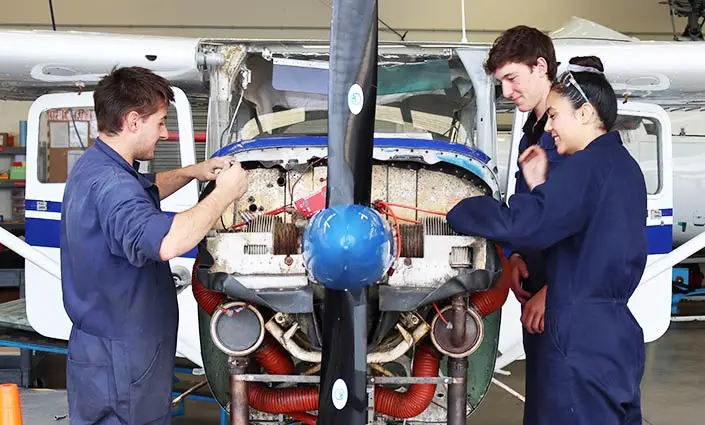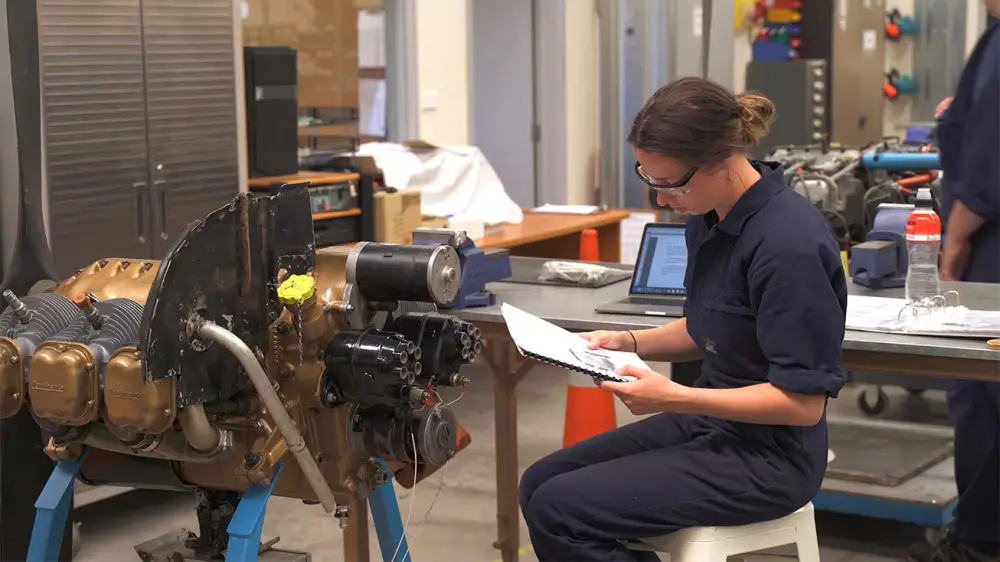Ask a question or call 0800 422 733
Aeronautical Engineering (Level 3)
-
Tahatū, Career Navigator
Discover career possibilities and how to reach your goals. tahatu.govt.nz(external link)
-
Locations and dates
Nelson:
20 April 2026Limited Places Available20 July 2026Limited Places Available -
Length
36 teaching weeks plus 5 weeks of study break
-
Total credits
130
-
Fees
2026: $9,603 plus $325 Student Services Fee (130 credits)
A Student Service Fee applies (2026; $2.50 per credit).
Fees listed are for each year of the programme, indicative only and may vary with course selection.
View course details for individual fees. -
National qualification code
NZ2898
Take your first step towards an exciting career in aviation engineering with a programme designed for hands-on learners ready to take flight.
| All places are now filled for 2026. Register your interest for 2027. |
|---|

The NZ Certificate in Aeronautical Engineering (Level 3) is the first step toward your future in aviation. With no prior experience needed, it's a perfect starting point for anyone passionate about aeronautical engineering. Start your journey with us today and build the skills to fly high in this exciting industry!
We’ve designed this programme in consultation with key players in the aeronautical industry to ensure it meets current demands and leads you into a rewarding career. This means you'll graduate with the practical, hands-on skills employers seek. Whether you aim to start working immediately or further your studies, this qualification prepares you for both.
What you’ll learn
- To confidently use aircraft maintenance documentation to complete real-world tasks.
- Operate aeronautical engineering tools and equipment to industry standards.
- Apply safe work practices in aeronautical environments.
- Understand human factors in engineering for effective teamwork and engineering efficiency.
- Learn how to maintain, repair, and overhaul aircraft using core construction principles.
- Deepen your understanding of aircraft systems and system maintenance, preparing you for complex repairs.

Real-world learning environment
You’ll learn in an authentic aeronautical engineering environment. You'll apply your skills in real-world scenarios, gaining practical experience while mastering the industry's theoretical and practical aspects.
Flexible learning
Our programme offers a mix of in-class and online learning, hands-on workshops, collaborative projects, and off-campus field trips. This balanced approach ensures a well-rounded education, combining theory with practical, real-world experience.



